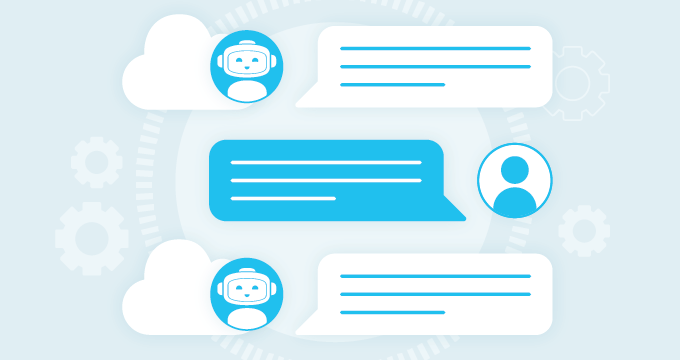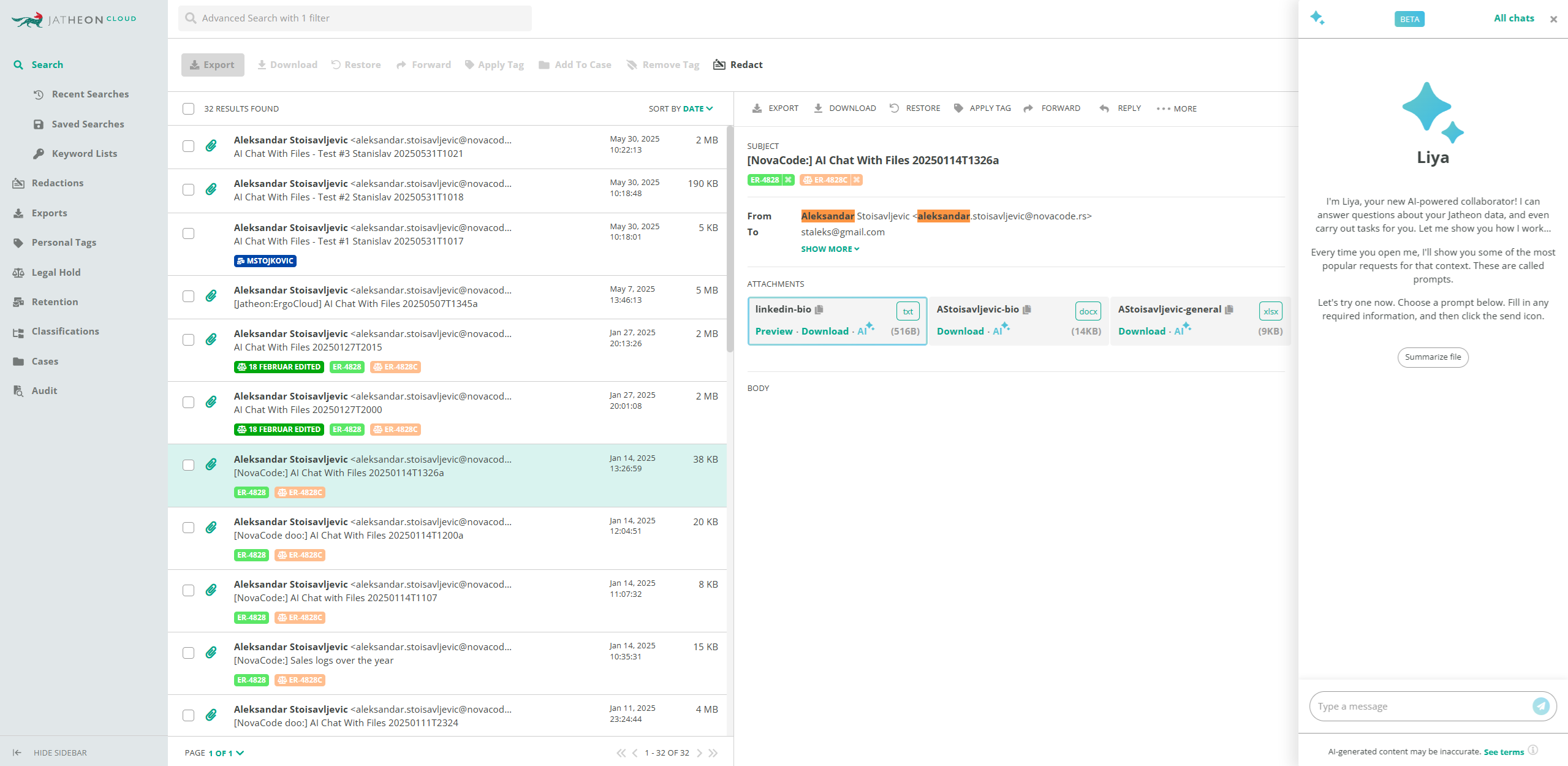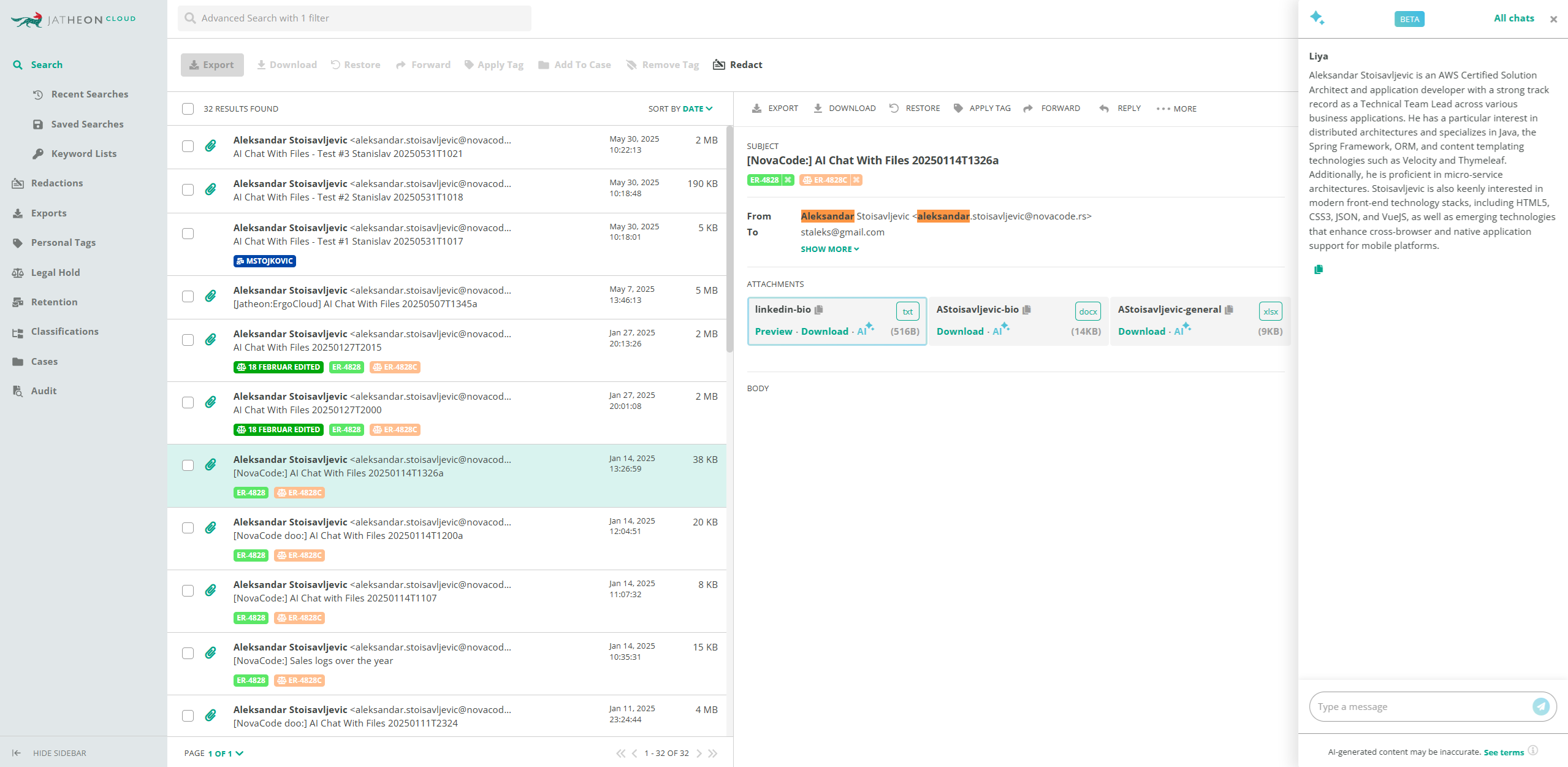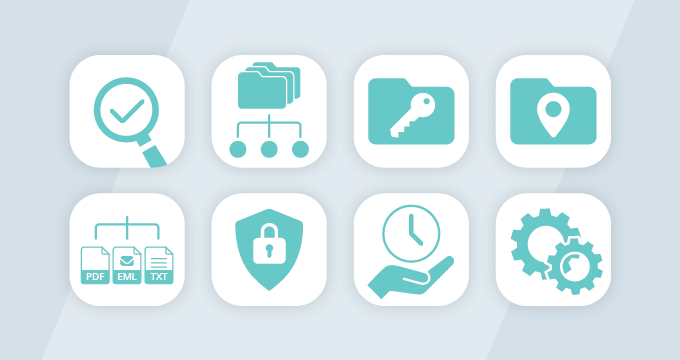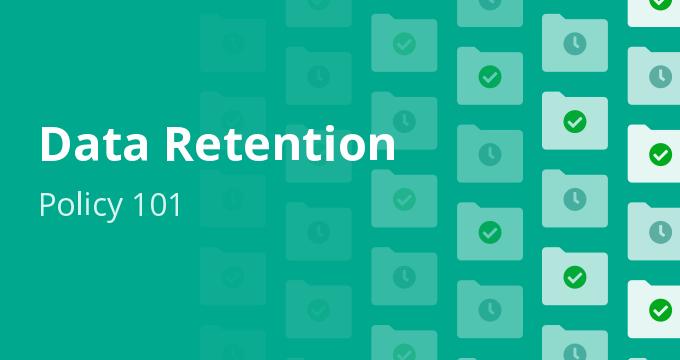In regulated industries, data archiving isn’t optional. It is a legal and operational necessity. With volumes of digital communication rising exponentially, organizations need smarter, faster, and more accessible archiving systems.
One emerging tool that is beginning to reshape how companies interact with their archived data is the AI virtual assistant.
While chatbots don’t replace the core archiving technologies, they are transforming the ways organizations search, manage, and comply with regulations around data storage.
In this article, we’ll discuss:
- Challenges of data archiving
- Benefits of implementing an AI virtual assistant
- Common features of the AI assistant technology
- Various industry use cases
The Data Archiving Challenge
Modern enterprises face mounting pressure to maintain extensive data archives while ensuring compliance, controlling costs, and enabling quick access to information when needed.
Traditional data archiving systems often require specialized technical knowledge, complex query languages, and significant manual oversight. This creates bottlenecks that slow down business operations and increase the risk of compliance violations.
The challenges are multifaceted: determining what data to archive and when, ensuring proper classification and tagging, maintaining data integrity over time, and most critically, making archived data accessible to users who need it without requiring a computer science degree to retrieve it.
What Is an AI Virtual Assistant for Data Archiving?
Data archiving AI chatbots represent a paradigm shift in how organizations approach data management. They rely on natural language processing, machine learning, and automation to transform complex data operations into simple, conversational interactions.
Imagine being able to ask your data archive, “Show me all customer contracts from Q3 2022 that mention pricing adjustments,” and receiving precise results within seconds.
This is the power of AI chatbots in data archiving. They democratize access to archived information while maintaining robust security and compliance standards.
Common Features of a Data Archiving AI Virtual Assistant
AI chatbots can be used in data archiving to streamline search, automate compliance tasks, summarize communications, support ediscovery, and assist users across departments with real-time guidance and training. Here’s how:
Intelligent search and data retrieval
Searching through a deluge of data is no easy task, especially when you have short production deadlines.
AI chatbots for business can dramatically simplify the process of locating archived content. Instead of requiring users to navigate complex search interfaces or writing complex database queries, users can interact with archived data using natural language since the AI understands context, intent, and business terminology.
- Employees can ask, “Find all communications between Jane Doe and the finance department in 2021.”
- Compliance officers can request, “Show records related to the SEC subpoena from last March.”
This saves time, reduces friction, and ensures non-technical staff can access archived data without extensive training.
Real-time compliance assistance
Chatbots can serve as on-demand compliance assistants. By integrating with the organization’s policy engine, they can:
- Explain archiving and retention rules for HIPAA, FERPA, SOX, or FINRA.
- Guide users through compliant data usage.
- Send automated reminders when retention schedules are about to expire.
This empowers staff to make informed decisions about handling sensitive information.
Intelligent content summarization
Beyond simply retrieving communications, AI chatbots can analyze and summarize large volumes of archived messages and emails.
Users can request summaries like, “Provide a summary of all client communications regarding the contract negotiation over the past month,” and receive concise overviews that highlight key points, decisions made, and action items.
This capability is particularly valuable for executives who need quick briefings on communication threads, legal teams preparing case summaries, or compliance officers conducting reviews of extensive email chains and messaging histories.
Streamlining ediscovery requests
Handling ediscovery can be time-consuming, error-prone, and expensive. In fact, reviewing documentation accounts for almost 80% of litigation spend. AI chatbots help streamline this by:
- Prompting legal teams through the required steps to initiate a legal hold.
- Gathering necessary metadata or messages based on specified parameters.
- Exporting documents in formats suitable for legal teams.
The result is quicker response times, fewer mistakes, and better alignment with legal requirements.
Alerting and monitoring
AI chatbots can monitor archive activity and flag anomalies. They can:
- Detect when large volumes of data are deleted or accessed unexpectedly.
- Notify compliance teams of unusual communication patterns.
- Suggest automated workflows for review or escalation.
Proactive monitoring improves oversight and helps prevent breaches or non-compliance.
Advanced AI tools elevate traditional monitoring by automating the prioritization and filtering of compliance alerts. Instead of overwhelming compliance teams with thousands of low-priority alerts, these systems emulate experienced analysts by learning from past decisions and risk patterns.
Key capabilities include:
- Automatically surfacing high-risk alerts for faster intervention.
- Reducing noise by suppressing irrelevant or repetitive communications.
- Maintaining audit trails and explainability for regulatory reviews.
These intelligent systems don’t just detect anomalies since they understand communication context and evolve with the organization’s policies, making compliance oversight more strategic and less reactive.
User support and training
Organizations often struggle to keep all employees trained on compliance tools. Chatbots offer a scalable solution:
- Available 24/7 to answer policy or archiving-related questions.
- Provide interactive training scenarios.
- Share step-by-step guides for data retention, legal hold, or data exports.
This reduces dependency on IT or compliance teams and builds a culture of accountability.
Helping classify and tag data
While archiving software handles classification, AI chatbots can support the process by:
- Asking clarifying questions to correctly categorize communications.
- Suggesting tags based on prior usage and context.
This is particularly useful when manual tagging is required and reduces the chance of human error.
Enhancing accessibility to archiving systems
By integrating AI chatbots with archiving platforms such as Jatheon:
- Organizations gain voice or text command access to data archives.
- Routine tasks like “Export all emails from Q3 2022” can be automated.
- Users can get summaries of archiving activities without logging into the dashboard.
These capabilities improve usability and reduce administrative overhead.
Integrating across departments
AI chatbots can be deployed across multiple departments, ensuring consistent understanding of compliance practices.
- HR teams can consult the chatbot about employee communication policies.
- Finance can verify data retention for audit prep.
- IT can receive alerts about storage capacity or user errors.
This cross-functional use ensures the entire organization stays aligned with archiving policies.
Contextual security and access control
AI chatbots understand not just what data exists, but who should have access to it and under what circumstances.
They enforce security policies dynamically, ensuring that sensitive information remains protected while enabling authorized users to access what they need efficiently.
Real-World Use Cases Across Different Industries
Healthcare organizations
Medical institutions use AI chatbots to archive and search through patient communications, including secure messaging platforms, email exchanges with patients, and internal staff communications about patient care.
A compliance officer might ask, “Find all email threads discussing patient discharge protocols from last quarter,” and receive HIPAA-compliant results that help improve care coordination and regulatory compliance.
Financial institutions
Banks and investment firms leverage these systems to archive client communications across multiple channels, from traditional emails and instant messages to social media interactions and mobile app conversations.
Compliance officers can query, “Show me all WhatsApp, iMessage, and email communications with clients about investment recommendations in Q3,” enabling comprehensive oversight of client advisory activities and regulatory compliance.
Government agencies
Public sector organizations use AI chatbots to manage vast archives of citizen communications across email, social media monitoring, SMS systems, and official messaging platforms.
A social services department might query, “Find all email, iMessage and text message communications with families regarding emergency assistance applications in March 2024,” while maintaining strict privacy protections.
The AI ensures that FOIA requests are processed efficiently while automatically redacting sensitive information according to established guidelines.
Legal firms
Law practices use AI chatbots to archive and search attorney-client communications, including encrypted messages, emails, and social media interactions relevant to cases.
Attorneys can ask, “Find all Signal messages and emails between our team and the client regarding the merger discussion,” streamlining discovery processes and ensuring privileged communications are properly managed.
Technology companies
Tech organizations archive employee communications across Slack, Microsoft Teams, email, and social platforms to maintain corporate governance and intellectual property protection.
HR departments can query, “Locate all internal communications mentioning the project codename “Phoenix” from engineering teams,” while respecting employee privacy and maintaining compliance with data retention policies.
How Does Liya, Jatheon’s AI Virtual Assistant, Work?
Jatheon recently launched Liya, a conversational AI assistant designed to help users query and interact with their email archives more intuitively.
Currently, Liya allows users to engage in a chat with certain types of email attachments. The assistant reads the content and provides a concise summary, giving users a quick overview of what’s inside.
Beyond summarization, users can ask specific follow-up questions related to the content — for example, “What’s the duration of the scheduled meeting and who are the participants?”
At present, Liya supports interaction with one file at a time. However, future updates will expand its capabilities to chat with multiple files simultaneously and extend support beyond just email attachments.
In case you want to save certain chats with Liya, you can label them as important.
Summary of the Main Points
Some of the takeaways to remember:
- Traditional archiving systems require specialized skills, complex query languages, and heavy manual oversight that can slow down operations.
- AI virtual assistants enhance how organizations interact with their archived data, making information management and retrieval faster, simpler, and more accessible.
- AI chatbots can be used in data archiving to streamline search, automate compliance tasks, summarize communications, support ediscovery, and assist users across departments with real-time guidance and training.
- AI chatbots are deployable across departments, but are especially useful for compliance, HR, IT, operations, and legal teams.
If your organization is exploring how to use AI to strengthen compliance, streamline ediscovery, and manage regulatory risk more effectively, contact us at sales@jatheon.com or book a demo to see how Jatheon’s AI-enhanced archiving and compliance solutions can support your team.
FAQ
How do AI virtual assistants improve access to archived data?
AI assistants allow users to interact with archived content using natural language, eliminating the need for complex search queries or technical expertise.
Is AI secure enough to handle sensitive communications and compliance data?
Modern AI assistants enforce contextual security and role-based access controls, ensuring that only authorized users can access specific archived information.
How does the AI virtual assistant reduce alert fatigue in compliance monitoring?
AI prioritizes high-risk alerts and filters out low-relevance noise based on learned patterns, allowing teams to focus on the most important risks.
Read Next:AI Audio and Video Transcription on Jatheon Cloud |
